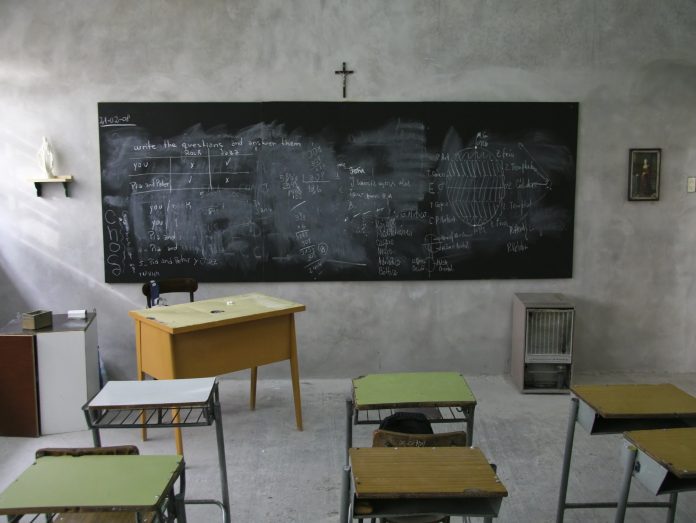
by Kate Ristow
[CLICK HERE] for a
worksheet to help older students learn about the mission and ministry of the
United States Conference of Catholic Bishops.
Shortly after his elevation to
Cardinal last spring, I wrote the Archbishop of New York asking His Eminence if
he would be willing to participate in an email interview for our readers. I
explained that the interview would be an opportunity for him to speak directly
to catechists and catechetical leaders in every diocese about their ministry
and to encourage them in their work. Cardinal Dolan, who Time magazine named one of the “100 Most Influential People in the
World,” graciously agreed.
Let the Cardinal’s inspiring words
serve as a source of ongoing affirmation as you continue to share your faith
with your students in the weeks and months ahead.
CATECHIST: What do you feel are the most important
factors in forming children in faith today?
CARDINAL DOLAN: First of all, it’s not just about forming children.
It’s about forming entire families, entire parishes—enabling them to form lifelong
relationships with Jesus Christ in his Church. Everything flows from that.
Think of it this way. If you fall deeply in love with someone, you want to know
all about that person. You want to be in that person’s company as much as you
can. You want others to know how wonderful that person is. You want to give
your life to that person.
So I would say that the most
important factor in forming Catholics of all ages in faith, and especially the
children, is to help them fall in love with Jesus and make him the center of
their lives, so that they will want to learn all about him and, as disciples,
share that knowledge through the Catholic Church with the world.
CATECHIST: Why is the ministry of catechesis important?
CARDINAL DOLAN: This ministry is the Church’s response to Jesus’
final instructions to his disciples before he ascended into heaven. It’s a
mandate, really, and it’s in Matthew 28:19-20: “Go, therefore, and make disciples
of all nations, baptizing them in the name of the Father and of the Son and of
the Holy Spirit, teaching them to observe all that I have commanded you.”
Of course, all baptized persons
are called to be catechists by example. However, the ministry of catechesis
enables the Church to fulfill Jesus’ mandate by preparing or forming those who
will hand on the faith, not only by providing the content and teaching
methodology but also, even more importantly, by nurturing their souls. People
cannot give what they do not have themselves. You cannot foster a relationship
with Jesus unless you have that relationship yourself. As the Archbishop of New
York, I am the chief catechist of the archdiocese. Pastors are the chief
catechists of their parishes. The men and women who dedicate their lives to the
ministry are our colleagues.
CATECHIST: How would you assess the state of child
religious education in our country today?
CARDINAL DOLAN: First of all, I would not presume to judge the way
other dioceses are taking care of this. However, in general, it is good, and
like all good things, can always be improved. For example, in many parishes,
religious education—which is really lifelong formation—is limited to
sacramental preparation. What happens to the children between First Eucharist
and Confirmation? Confirmation looks like graduation. That’s a worry for me.
Another concern is being able to
provide catechesis to immigrants in their languages. We certainly can’t wait
for them to learn English. That would be unfair.
Perhaps the most worrisome thing
is in finding, training, and justly compensating the lay women and men who lead
parish religious education programs. We wouldn’t put an unprepared principal in
a Catholic school or fail to compensate him or her. If we did, we’d destroy the
school. The same standards of professionalism and justice should apply to
parish directors and coordinators of religious education.
CATECHIST: What is/are a catechist’s greatest challenge/s
today?
CARDINAL DOLAN: It’s the Church’s challenge: competing with the
culture for the hearts and minds of our people. Mind you, not everything in our
culture is bad; it’s just that there are so many things going on.
Take technology. It is difficult
to focus people in a society that demands multi-tasking. For example, 20 years
ago, you didn’t have to worry about phones ringing and youngsters texting
during a catechetical session. If a youngster actually had a mobile phone 20
years ago, that was all it was. I am not putting down technology. What I am saying
is that it is overtaking the message.
Another challenge is that many
parents are not comfortable talking about Jesus and the faith with their children.
Probably, they are not well-catechized themselves. They don’t have the
relationship with Jesus so they cannot model it for their children or reinforce
at home what a child learns in a catechetical session.
You also have growing numbers of
broken families, with children going to Mom on one weekend and Dad on the
other. Where does the child attend Mass…or does the child worship at all? And
in this economy, parents are holding down several jobs and just do not have the
time or energy to spend time with their children.
Parents are supposed to be the
prime catechists of their children, but our culture doesn’t make it easy for
them to do this. Responsibility for handing on the faith falls largely on the
catechist and the parish.
CATECHIST: As you know, the Catechetical Sunday theme
this year is “Catechists and Teachers as Agents of the New Evangelization.”
What is the “the New Evangelization” and how can catechists put this into
practice throughout the year?
CARDINAL DOLAN: As I described
it to my brothers in the College of Cardinals on February 17, the New
Evangelization is the rekindling of faith in persons and cultures where it has
grown lackluster. Of course, lackluster faith is not peculiar to our times. The
generation that actually heard Jesus’ voice had to be reminded by Paul “to stir
into flame” the gift of faith they had been given. However, today we face an
enormous challenge: secularism, which is invading every aspect of life and
developing a mentality in which God is absent from human life and awareness.
This is happening not only outside the Church but in the Church as well.
Now
how can catechists put this into practice? By extending to the children and to
entire families real opportunities to enter into a loving relationship with the
person of Jesus. I would hope our catechists will develop creative ways to
engage families. In my archdiocese, we already require every parish religious
education program to offer at least two family catechesis gatherings a year. We
know this works. Parents tell us that they are more at ease talking about the
person of Jesus with their children.
We
need to make sure that religious education doesn’t stop with Confirmation or
high school graduation. And, perhaps most importantly, catechists should
recruit new catechists to the ministry. We can never have enough of them.
CATECHIST: What words of encouragement can you give
catechists?
CARDINAL DOLAN: The first words I would say are “Thank you. Thank
you. Thank you.” I would tell catechists that the Church knows and appreciates
that they are on the front lines of the New Evangelization. They are the ones
who, day after day, year after year, are fulfilling Jesus’ last directive to
his disciples.
I know it is not easy; the
conditions are not always the best. Someone turns off the heat. The rooms are
poorly equipped, or it’s a school classroom and no one can touch anything.
There’s competition with sports programs. I am aware of the challenges, but no
words of mine would compare to what Jesus said at the very end of Matthew’s
Gospel, “I am with you always, until the end of the age.”
Getting to Know Cardinal Timothy Dolan
Early Years
* Born in Maplewood, Missouri,
in 1950
* Oldest of five children
* Attended high school at St.
Louis Preparatory Seminary South
Priestly Formation
* Earned a bachelor of arts in
philosophy from Cardinal Glennon College in St. Louis
* Completed his formation as a
priest at the Pontifical North American College in Rome, where he received a license
in sacred theology at the Pontifical University of St. Thomas Aquinas
* Earned his doctorate in
American Church history from Catholic University in 1983
Assignments and Appointments
* Ordained in 1976 and served as
an associate pastor at Immacolata Parish in Richmond Heights, Missouri
* Appointed to a five-year term
as secretary to the Vatican’s diplomatic mission in Washington, D.C., in 1987
* Named vice rector of
Kenrick-Glennon Seminary in St. Louis in 1992, where he also served as director
of spiritual formation and professor of Church history.
* Served as rector of the
Pontifical American College in Rome 1994-2001
* Named auxiliary bishop of St.
Louis in 2001; named the Archbishop of Milwaukee a year later
* Installed as Archbishop of New
York in 2009
* Elected to a three-year term
as president of the United States Conference of Catholic Bishops in 2010
* Elevated to the College of
Cardinals in February 2012 by Pope Benedict XVI
Words to Live By
* Cardinal Dolan’s official
motto echoes the words of St. Peter in John 6:68: Ad quem ibimus, “Lord, to whom shall we go?” This quotation
underscores the belief that Jesus is the way, the truth, and the life of
eternal happiness. It is a motto that is joyfully imbued in the daily life and
ministry of Cardinal Timothy Dolan.
* Read Cardinal Dolan’s blog and
homilies at archny.org.
Kate Ristow, Contributing Editor to CATECHIST, has
worked in Catholic publishing for over 25 years as a national speaker and
writer, building on a wealth of experience in the religious formation of
children and catechists in both parish and Catholic school programs.
Copyright 2012, Bayard, Inc. All rights reserved. This article is protected by United States copyright and other intellectual property laws and may not be reproduced, rewritten, distributed, redisseminated, transmitted, displayed, published or broadcast, directly or indirectly, in any medium without the prior written permission of Bayard, Inc.
This article was written by the Catechist Staff and appeared in Catechist magazine, October 2012.
Image Credit: Shutter Stock 36076513




